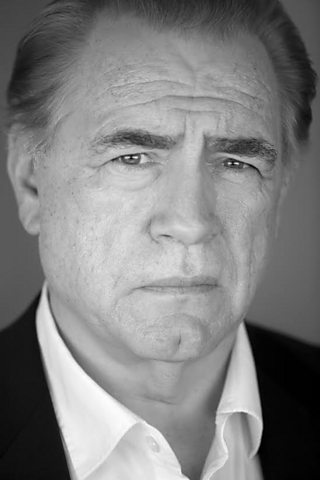The life of Brian Cox and how he became the voice of his hero
Born in Dundee in 1946, Scottish-born Brian Cox, CBE, has forged a highly successful career in the limelight, using his public platform to voice his support in bettering the UK educational system as current Rector at Dundee University. His activism echoes that of Andrew Carnegie, whom Cox voices in the untold story of one of the most fascinating figures in world history.

Cox鈥檚 parallel character traits with the documentary鈥檚 subject are unmistakeable
Cox is an understated but duly respected UK national treasure, a veteran more well-versed than most in portraying a perfectly formed character; whether it be a scheming king, a killer psychopath or a mutant-hunting colonel.
With a weighty background in traditional theatre that has crossed over to blockbuster stalwart in recent decades, Cox is particularly noted for his work with the RSC, and for his roles in Wes Anderson’s RUSHMORE and Marvel’s X-Men films.
Through his ability to carry out fine and varied performances of personas both live, broadcast and recorded, Cox’s rise from theatre through the ranks of TV and independent cinema to blockbuster film came after years of treading the boards. Whilst he notes a regret of not doing more movies as a youngster, it is clear his work has led to a number of avenues not simply entertainment-based.
This leads to his decision to voice the iconic steel magnate and arguably the greatest philanthropist of the 20th century, Andrew Carnegie in Galeforce Films’ historical documentary
Andrew Carnegie – Rags To Riches, Power to Peace
He has come to be recognised as a keen political activist and philanthropist for not only young dramaturgs, but for those struggling to get into higher education in general. His work with the Yes Scotland campaign saw Cox support Scottish independence, and this year he left the Labour Party, aligning his beliefs and motives more along those of the Scottish National Party who campaign for higher education and whose social justices no doubt match those of the greatest philanthropist of education Scotland has ever seen; the unrelenting and ultimate high-achiever, Carnegie.
Growing up in rural Dundee, Cox’s start in life was not dissimilar to that of Carnegie’s: arduous and working class, in a Scotland caught in the midst of political struggle and class war. Like Carnegie, Cox’s childhood featured trade collapses, little presence of his father and a strong and independent mother, who worked as a spinner at the mills and taught Cox the real meaning and return of hard graft and application.
An avid reader and keen cinema-goer, Cox’s cultural and social interests branched into politics and higher education — spurned by not only his working-class upbringing, but also the raw experiences of his theatrical work, his travel and, not least, his readings and appreciation for figures such as Carnegie, a champion for civil rights and education for the masses.
He has come to be recognised as a keen political activist and philanthropist for not only young dramaturgs, but for those struggling to get into higher education in general. His work with the Yes Scotland campaign saw Cox support Scottish independence, and this year he left the Labour Party, aligning his beliefs and motives more along those of the Scottish National Party who campaign for higher education and whose social justices no doubt match those of the greatest philanthropist of education Scotland has ever seen; the unrelenting and ultimate high-achiever, Carnegie.
Growing up in rural Dundee, Cox’s start in life was not dissimilar to that of Carnegie’s: arduous and working class, in a Scotland caught in the midst of political struggle and class war. Like Carnegie, Cox’s childhood featured trade collapses, little presence of his father and a strong and independent mother, who worked as a spinner at the mills and taught Cox the real meaning and return of hard graft and application.
An avid reader and keen cinema-goer, Cox’s cultural and social interests branched into politics and higher education - spurned by not only his working-class upbringing, but also the raw experiences of his theatrical work, his travel and, not least, his readings and appreciation for figures such as Carnegie, a champion for civil rights and education for the masses.
Brian鈥檚 Love of Drama
My favourite institution was drama school; it taught me everything!
I really do believe the study of drama is beneficial to all other subjects. Despite leaving school at 15 and receiving no qualifications whatsoever, education has always been important in my life.
I needed a cultural education, which school didn’t give me, but pursuing my passion and the study of drama taught me what I needed to know.
I’m very pleased to be the Rector of Dundee University, and very grateful to the students who kindly elected me for a second term, and I fully intend on running for a third!
